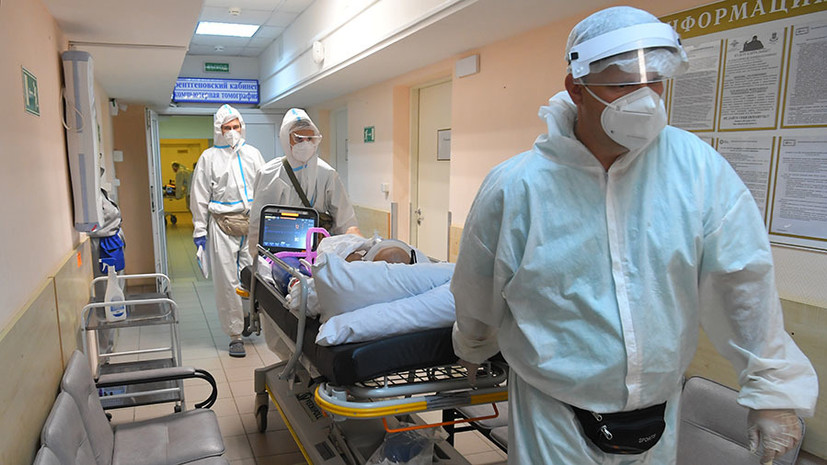The consequences of coronavirus infection in patients who have undergone COVID-19 can be observed for up to six to nine months and even longer.
Experts call this phenomenon "long covid", said the head of the Ministry of Health of the Russian Federation Mikhail Murashko during a conference call with the regions.
According to him, those who have recovered from the coronavirus may have symptoms affecting various body systems.
“Patients have neurological disorders, including cognitive disorders, memory problems, increased fatigue, various manifestations of the cardiovascular system, respiratory system, musculoskeletal system,” Murashko quoted TASS as saying.
The Minister stressed that patients who experience health problems after suffering from COVID-19 should be promptly identified during an in-depth medical examination.
Then they must be sent for rehabilitation or treatment on an outpatient or inpatient basis (depending on their condition), Murashko emphasized.
"This is especially important for senior citizens, who, including due to concomitant diseases, are more susceptible to the severe course of COVID-19 and its longer and more dangerous consequences," he stated.
Speaking on the air of the Russia 24 TV channel, Murashko also said that within six months after suffering a coronavirus infection, the risk of death increases sharply.
He clarified that after illness, the patient may face thrombosis, damage to the nervous and cardiovascular systems.
Also on russian.rt.com Immunologist Kryuchkov spoke about a common complication after COVID-19
The head of the Ministry of Health added that the authorities have allocated 85 billion rubles to the regions to finance a number of medical programs: "This will fully ensure the provision of both assistance to patients with COVID-19 and routine medical care."
Meanwhile, the Moscow authorities said that residents of the capital who have had coronavirus will be able to undergo an in-depth medical examination for free.
According to the press service of the capital's mayor and the government, in 2021 alone, almost 850 million rubles were allocated for these purposes.
“For carrying out an in-depth clinical examination in 2021, the Moscow City Fund for Compulsory Medical Insurance was allocated earmarked funds from the federal budget in the amount of 847.6 million rubles,” the website of the mayor of Moscow says.
It is noted that the medical examination will be carried out in two stages.
The first will consist of a consultation with a therapist and seven studies.
After analyzing the data, the patient can be sent to the second stage and an additional examination can be prescribed.
Over the past day, 17,813 new cases of coronavirus have been detected in Russia, 18,624 people have fully recovered, 795 have died from complications that developed against the background of COVID-19 and concomitant diseases.
Over the entire period of observations in the Russian Federation, 6,918,965 cases of coronavirus were detected.
183,224 deaths were recorded, 6,181,054 people recovered.
According to Rospotrebnadzor, since the beginning of the pandemic, more than 178.7 million laboratory tests for the SARS-CoV-2 coronavirus have been performed, more than 1.2 million people remain under medical supervision.
Strain C.1.2
The Vector center said that there are no confirmed cases of the coronavirus C.1.2 mutation in Russia yet, identified in nine countries - South Africa, Mauritius, Zimbabwe, Botswana, China, New Zealand, Portugal, Switzerland and the UK.
Media previously reported that C.1.2 may be more aggressive and more resistant to vaccines.
"Based on the set of mutations in the C.1.2 lineage, the National Institute of Infectious Diseases of South Africa suggest that it is possible that viruses belonging to this lineage may partially evade the immune response, but vaccines will still provide a high level of protection against hospitalization and death." - quoted by TASS message "Vector".
The experts admitted that C.1.2 may have "some advantages in terms of susceptibility to components of the immune response."
Additional research is needed to clarify the relevant parameters, Vektor noted.
At the same time, scientists believe that variant C.1.2 does not have the qualities that would allow it to supplant other strains.
The World Health Organization also said that they did not detect an increase in the circulation of this strain of coronavirus.

